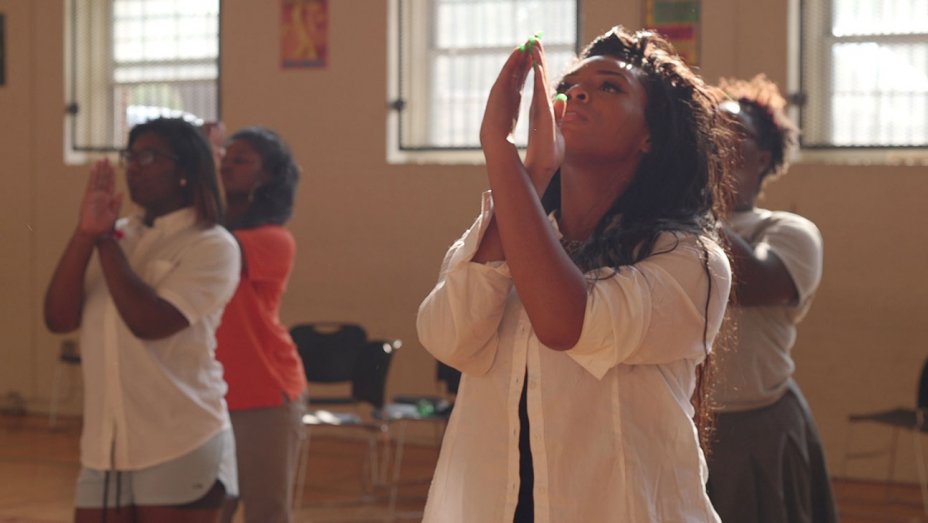“Step is life.”
More times than not documentary filmmakers work tirelessly to educate and inform, not entertain. But Broadway producer (and first time filmmaker) Amanda Lipitz goes against the grain with Step, an overly joyous look at an inner-city Baltormire girls step team’s senior year.
At a rather breezy 83 minutes, Step forgoes the usual dive, opting instead to give us a rather broad glimpse at the lives of the team’s members. That isn’t to say that the film itself doesn’t deal with some personal issues, it does. But instead of dialing into one aspect, Lipitz opens the world of step to offer up a more universal appeal for the film.
Lipitz focuses on three step members in particular: captain Blessin Giraldo, the original founder of the team who thrives on the court but can’t seem to find her footing at both school and home’ Cori Grainger, a stellar student who longs for a scholarship to the school of her dreams; and Tayla Solomon, a blunt, straight-talker whose charismatic mother serves as the group’s unofficial team mom.
Together these ladies are striving for two goals during their final year at the Baltimore Leadership School for Young Women: graduate and get accepted into college, and win the Bowie State step competition. Both are achievable, but neither will come without work.
As the film progresses on and each girl is met with her own inner demons, it is hard to not pull for each of them as they work to overcome grades, relationships and lackluster support systems. Blessin has the hardest road of them all as her mother suffers from depression, checking in and out of her daughter’s life with no predictability. Cori’s mother recently married her boyfriend, and though the duo do everything they can to ensure their daughter’s educational future is big and bright, the money isn’t there to deliver on her dreams. Tayla is unapologetically embarrassed by her helicopter mom, a correctional officer whose unlimited pride for her daughter brings a fresh, much needed sense of love and family to the film.
Lipitz had no way of knowing when she embarked on this project that the film would began on a sad note as Baltimore resident Freddie Gray died while in police custody. The story made national headlines, prompting protests and riots. Lipitz brilliantly navigates the important story, refusing to allow the film to get swallowed up by any political agenda, rather showing the aftermath through the eyes of the women she is following. It’s overall integration is neither forced nor unwelcome, rather a natural synthesis that rose out of the time frame the footage was shot.
Though their are numerous distractions, Lipitz always successfully brings us back to step. While the actual creation of the choreography is hardly touched upon, the final product proves a small glimpse into the lives of these young woman as they battle against the odds, using their performance as a means of expression. Though I will never fully understand the complexities that lie within the movements, the final routine connects smoothly with the woman whose story it tells. Step offers up a unique documentary that many purist will dismiss based on its approach. But those who give it a chance will be welcomed by a story that is uplifting, inspiration and a strong voice for a group of people who wish only to be seen and heard.

